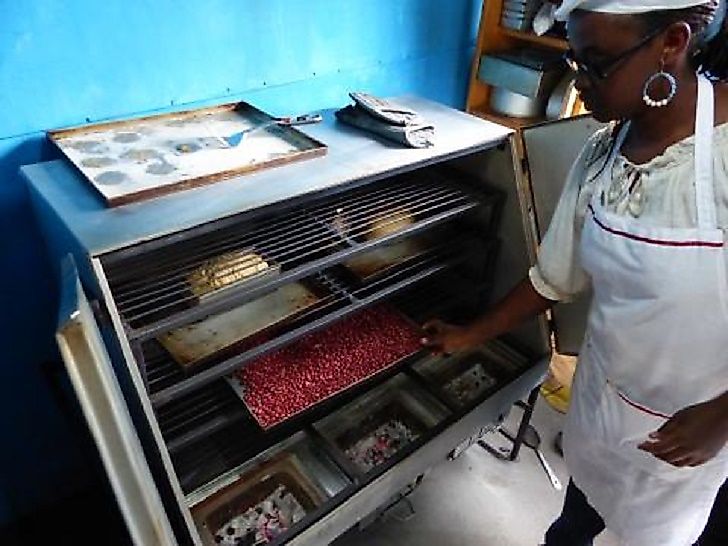Most Expensive Countries To Start A Business Relative To Per Capita GNI

Entrepreneurship
Starting a business, or entrepreneurship, involves research, planning, designing, marketing, and launching an idea. Entrepreneurs, the people with the idea, are committed to turning their dream into a profit. The range of business types is wide and can involve offering a product or service for sale or temporary contract. Entrepreneurship comes with significant risks and potential instability that are not typically found in traditional employment positions. People who are willing to take on these risks have been shown to positively affect the economy.
Entrepreneurship and the Economy
Entrepreneurship endeavors are a critical component of a healthy economy. New businesses often lead to job creation which increases tax revenues for the government. These tax revenues can be used to invest in public infrastructure and much needed social programs, such as healthcare and education. They also rely on products and services from existing businesses which helps create a cycle of mutual benefit. Incomes are increased across the board which allows for increased personal spending and subsequent economic stimulation. On an individual level, the benefits of entrepreneurship lead to increased happiness, improved quality of life, and economic resources. Due to the potential advantages, one might assume that governments would do everything possible to encourage entrepreneurial activity. This is not the case in many countries.
Developed Countries Where it is Expensive to Start a Business
In some places, the cost of starting up a business is prohibitive to the general public. When the start up costs are overly expensive, it not only discourages entrepreneurial activity, but makes it nearly impossible for the general public to take advantage of new businesses' goods and services. In South Sudan, a newly formed African nation, the cost of starting a business is 330.1% more than the gross national income (GNI) per capita. The GNI per capita of residents is roughly $790. This means the cost of starting a business is roughly $2,600. In Haiti, the cost is 235.3% of the GNI per capita which is $820. The third most expensive country (compared to GNI) is the Central African Republic at 204% of the per capita GNI. Here, the GNI is only $320.
The rest of the list of expensive places to start a business exhibits similar trends. All of the countries are developing economies where the majority of residents live in extreme poverty. People simply cannot afford to start a legal business which increases the likelihood of informal economic activity. Informal economic activities means that people are running businesses that are not regulated by the government and earning incomes that are not taxed. While this does provide an income for individuals who might not be able to find a job, informal businesses can have disastrous consequences for the economy. It means a lowered tax revenue and lack of benefits for the workers.
Help To Get Started
How can individuals and governments get over these hurdles to formalized entrepreneurial activity? For starters, lowering the fees associated with registering a business so that being an entrepreneur becomes accessible for people with lower socioeconomic statuses. Another is improving banking systems so that credit becomes accessible. There are many nongovernmental organizations (NGOs) in areas such as these that are working towards exactly that objective. They provide small, low interest loans to individuals without collateral who are otherwise unable to obtain credit. These types of funds are called microfinance or microcredit loans.
Most Expensive Countries To Start A Business Relative To Per Capita GNI
| Rank | Country | Cost to Start and Register a Business Relative to Per Capita GNI |
|---|---|---|
| 1 | South Sudan | 330.1% |
| 2 | Haiti | 235.3% |
| 3 | Central African Republic | 204.0% |
| 4 | Djibouti | 168.1% |
| 5 | Chad | 150.4% |
| 6 | Gambia | 141.6% |
| 7 | Micronesia | 141.1% |
| 8 | Comoros | 118.2% |
| 9 | Zimbabwe | 112.0% |
| 10 | Suriname | 100.7% |











